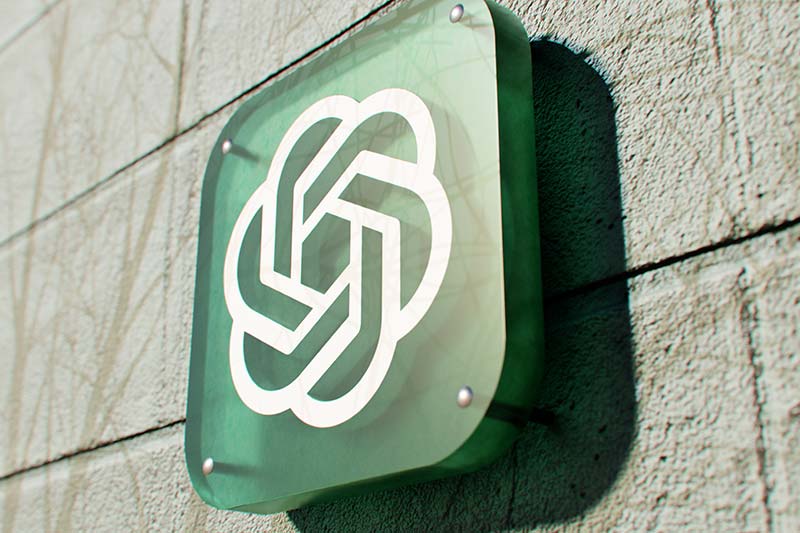Stock of the Week: A Contrarian Consumer Play for 2023
Alpesh Patel|January 20, 2023
When the headlines are talking about one thing… it’s usually something else that’s making money.
That’s why I have a contrarian pick for this week’s Stock of the Week.
It’s a consumer play that’s flying under the radar thanks to the focus on energy, financials and healthcare.
It has solid fundamentals… and, even better, one of the best CROCI scores in the markets today.
But thanks to all the negativity about a coming recession, analysts have overestimated the downside for this stock. And that has caused the price to drop by 50%.
I’m convinced that the bottom is in and that this one is ready to pop.
Get all the details on the stock – including the ticker – in this week’s video.
Click on the image below to watch it.
Transcript
Hi, everyone. I’ve got a slightly contrarian Stock of the Week for you all.
Part of the reason for that is that when everybody is talking about one thing, that means there’s something else which is actually going to make money.
So I’ve got what you might call a consumer cyclical stock at the moment. And consumer cyclical stocks are not really in vogue so much. People have been focused on financials, energy and healthcare.
Well, there are a lot of reasons to be more optimistic about the consumer and consumer demand. And really, the backdrop to this is the fact that, in the U.S., we’ll probably miss the recession. Or if there is one, it’ll be very mild. Interest rates are likely to peak this year. Energy prices have already started dropping, and it doesn’t look like they’ll be as bad as we thought. And inflation is probably getting under control and will be back to more normal levels next year.
The market tends to look ahead. That’s why I think cyclicals may well end up doing better than anticipated.
So what have I got for you as my Stock of the Week? I’ve got Best Buy (BBY). You might think that’s a bit unusual… “It’s a company we’ve heard of. We wanted you to give us a company we’ve never heard of, Alpesh.”
Well, actually, you’re right. Whilst you’ve heard of it, there are certain things you might not know, particularly in relation to its financials.
So my hedge fund team came up with this stock. I vetted it. They gave me a short list of stocks, and I looked at the figures and thought, “Actually, I’m going to go with this one.”
As you know, it’s an electronics retailer. They sell consumer electronics and things like software, video games, music, mobile phones, digital cameras, car stereos, etc.
So there’s a bit of diversification.
They’ve also got home appliances like washing machines, dryers, refrigerators and so on. They’ve got a domestic and, obviously, an international side to them. They’ve been around since 1966, which makes them older than I am.
They have dividend payments, which is good. I think dividend-paying stocks are going to be very much in vogue given higher inflation rates.
They’ve got a profit margin… it isn’t phenomenal. It’s a net margin of 3.23%. It’s not fantastic, but they’ve been around long enough to know what they’re doing. And they have strong returns on capital and equity, as we will see.
So let’s just deep dive into some of those financials now, shall we?
On my Alpesh Growth-Value-Income rating (GVI) – where I look at the revenue growth of the company, the valuation of the company based on its share price to its profitability and its share price compared to the rate at which profits or earnings are growing, and its dividend yield – it scores an 8 out of 10.
Now, anything at 7, 8 or 9 meets my minimum criteria. This is a proprietary algorithm we developed within the hedge fund in order for us to scan a lot of stocks very quickly and score the best ones based on value, growth and income. So we don’t gamble. We don’t ask, “Is it a value stock? Is it a growth stock? Is it a momentum stock?”
We tick all those boxes. And we’re unusual in that because most funds will just go for, “We’re a value player, we’re a growth player,” or whatever else. We’re not. We’re ticking all of those boxes so we do proper due diligence. It’s got an 8.
CROCI, cash return on capital invested, is 29.8%. One of the highest companies out there.
What does CROCI mean? It’s a measure of the cash a company generates on the capital that it has.
This is important because Deutsche Bank Wealth Management discovered this formula, and then Goldman Sachs Wealth Management uses it for its wealthiest clients. And what Goldman Sachs discovered is companies in the top quartile – the top 25% by cash return on capital invested, the top 25% of all companies – generate on average a share price return of 30% per annum.
Not every company in that top quartile and not every year, but as a basket, on average, over the long term. So Best Buy meets that minimum criterion.
It’s up over the last difficult six months. The Sortino, which is a measure of reward versus risk, isn’t great. It’s not great. I’ll admit it. Volatility’s only around 20%, which is good. I don’t want things to be overly volatile.
Now, what else do I like about it? Well, several factors come into play. Return on capital employed – which is sort of a sister, or a sibling, of cash return on capital invested – is 35.7%. Return on equity – again, a sibling of cash return on capital invested – is 63%. So that ROE is 63%. Very attractive.
Now, this is where I think it becomes an interesting play… the forecast. The market as a whole has been focusing on the recession. It’s been focusing on higher interest rates and financial stocks and healthcare and energy. Analysts, I think, have overestimated the downside. They’ve forecast turnover to decrease, profits before interest and tax to decrease, and pretax profits to decrease. They think these kind of consumer cyclical companies are going to get hit because people have less money to spend.
I think they’re wrong. I think the economy is not going to be as bad as they think it is. I think things are going to be better for people than you might otherwise think.
So, beaten down, the valuation has got a forecast P/E multiple of 13. That means its shares currently trade at a multiple of 13 times forecasted profits.
Well, that’s not cheap, but it’s certainly not expensive. And it’s lower than the market as a whole. So I like it. I like what I see there.
Turnover over the last few years has been going in the right direction, albeit borrowing has increased. And of course, companies with high borrowing have high borrowing costs with interest rates rising.
But that, I think, is overridden by pretax profits going in the right direction and assets going in the right direction as well.
And you can see those negative forecasts have pummeled the share price. They pretty much caused the stock to drop 50% since roughly December of 2021. So since about a year ago, roughly, it’s dropped 50%, and then it’s recovered somewhat to $85 at the time of writing… I think roughly $85 at the time of writing.
I think it’s bottomed. I think it’s going to rise higher. And I’m going to set a target on this of about $120 within 12 months. It’s what I reckon.
Now, on a discounted cash flow basis, it’s about 20% undervalued. Depending on how you measure these different things, on average… I said earlier that earnings before interest and tax were forecast to drop, and pretax profits were forecast to drop. But depending on how you measure it, earnings are forecast to grow 7% per year. Reliable dividend, as already mentioned. Profit margins are low, lower than they were last year.
And there are some other negatives like the volatility – albeit only 20%, although the share price movements could still lead to a 32% drop in just 20 days or an extreme of 33% or 34% over 100 days.
So there is some downside risk, and it could easily drop. We’ve seen some drops in the past. But you can see what I expect to happen with this.
Anyway, I hope that gave you some insight, both into how we do the analysis and how we have to override some of the negatives with more of the positives… and also an insight into what’s happening with the broader economy.
So I hope, as always, this has been educational and informative.
Thank you all very much, Manward family.



